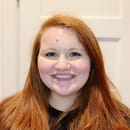The majority of English classes are focused on reading books and analyzing them critically, with the goal that students will know how the language works and how to use it when they are done. Lessons on proper grammar are sprinkled in here and there so that no one forgets the proper use of a gerund. There’s nothing inherently wrong with using books to teach, in fact it can be quite beneficial, but this method can be exploited to become counterproductive. For example, having English students choose a book to read critically and form their own thoughts about is fine (a flawed but more productive method), but an English teacher just assigning a book that they like and then teaching their thoughts on it is extremely inefficient. This process prevents students from reaching their own conclusions about the reading material and causes them to become bored, since the teacher will just tell them what they’re supposed to think or feel in regards to the book. This process is also a reason why students are prompted to use summary sites such as Sparknotes; if their teacher is going to tell them what conclusions they should come to, then what is the point in properly reading the material in the first place?
There is also a direct correlation between this style of teaching and the idea of authorial intent; the notion that the author’s intention for a book is inherently superior to the reader’s interpretation. The obvious downside of this style of teaching is that students don’t actually learn critical thinking skills at all; they’re learning the supposed intention of someone who might be long dead and will most likely never confirm the reader’s assumptions about their writing.
The 1967 essay by Roland Barthes, “The Death of the Author,” fits in nicely with this narrative on teaching styles in regards to authorial intent. The essay as a whole rejects the idea of studying literature in terms of what the author intended, and instead posits that readers, critical or not, should form their own meanings for the books that they consume. This style of reading gives the freedom of thought back to the reader, as opposed to making them blind slaves to the idea of authorial intent.
I have had the privilege of living a full academic life in the twelve years of school prior to college. I was educated across three different teaching formats: homeschooling, public, and semi-private. I was homeschooled for the first eight years of my education, from the equivalent of kindergarten through seventh grade. I read a lot of books during that time, and had a lot of English assignments in conjunction with those books. What I never had to do was analyze a book beyond usefulness; I did have to occasionally answer questions about authorial intent, but each decision about said intent was made by me and me alone. In most English classes, the teacher reads the books along with the class (or is otherwise familiar with the material), but this wasn’t the case when I was homeschooled. My mother was teaching three other children in addition to me, so reading the course material beyond the assignment wasn’t an option. Thankfully, that came with a beneficial outcome; I had the freedom to make my own opinions on the books I read, and, in the process, those books became more valuable to me.

I attended public school for one year; eighth grade. Obviously, teaching styles were very different from what I had been used to, and English class was no exception. We had books that we read as a class that, more or less, followed the ideals of authorial intent, were analyzed by the class, and given instruction by our teacher. This style of teaching is more on par with how most English classes are taught and how I felt many of my high school English classes were taught. There was one key difference though. In addition to the books that we read as a class, we were also required to keep reading journals, where we read books independently and wrote reports on them when we were done. This practice gave the power of reading and critical thought back to us as students, since we were again able to make our own decisions about what the books we read meant to us. My high school English classes operated much in the same way that my middle school class did, with the exception of the reading journal.
The downside of high school English (at least in my experience) is that the monitoring of extracurricular reading doesn’t exist, and combined with the “here’s how to feel about this” teaching style, there is no guarantee that students will read any books over the course of those four years. This is extremely dangerous, especially in the Information Age, a time period where young people are essentially being raised on or by technology. The death of the author theory has existed for more than half a century, so why is it not more widely recognized or supported? The short answer is that people believe that published authors are somehow on a different plane of cognitive existence, and that their thoughts are inherently superior simply because they have written a book. It is also possible that we have once again fallen into the “it has been this way for so long why change now” conundrum, and are unable to imagine a world outside of education through the method of authorial intent.
So what can we do to remedy this situation? We can encourage children and students to read, but allow them to read books that align with their interests, therefore they are more likely to read and develop informed opinions in those areas and branch out if they so choose. There is too much focus today on what children “should” be reading, and, as has been highlighted throughout this entire piece, the overregulation of an arbitrary activity only ensures that less people will participate. Creating more flexible teaching styles where students are allowed more freedom in regards to the content they are reading, or formulating teaching plans that focus on student opinions and theories would be a huge step in the right direction. This will also allow us to actually teach the critical thinking skills that we seem to value so much. There will of course still be issues even if we are able to implement any of these changes to our education system, but the author needs to die if we are to move forward.
If you would like to write for Her Campus Mount Holyoke, or if you have any questions or comments for us, please email hc.mtholyoke@hercampus.com.



